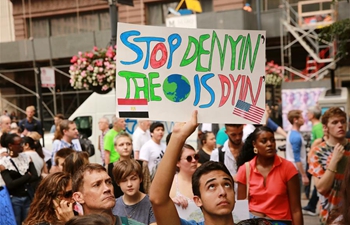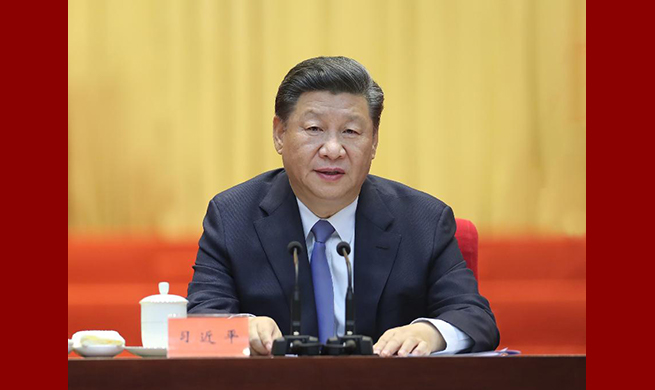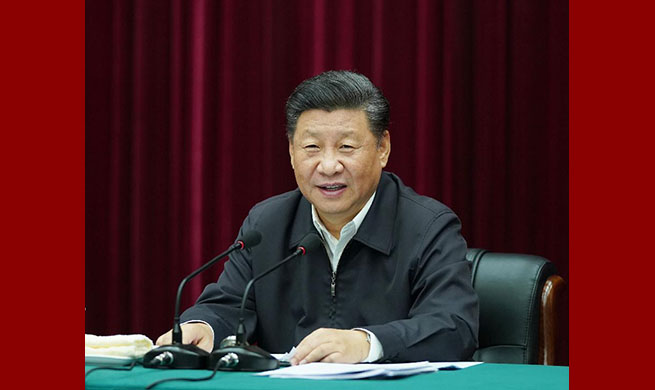WASHINGTON, Sept. 20 (Xinhua) -- U.S. Federal Reserve officials remain divided following a quarter-point interest rate cut earlier this week, as three of them spoke out and defended their respective views on Friday, signaling a growing split among monetary policymakers amid rising risks to and uncertainties in the U.S. economy.
James Bullard, president of the Federal Reserve Bank of St. Louis, continued to demand a larger cut in interest rates, after voting against the U.S. Fed's decision to lower rates by 25 basis points on Wednesday.
"I believe that lowering the target range for the federal funds rate by 50 basis points at this time would provide insurance against further declines in expected inflation and a slowing economy subject to elevated downside risks," Bullard, one of the three dissenters at the central bank's latest policy meeting, said in a statement.
"It is prudent risk management, in my view, to cut the policy rate aggressively now and then later increase it should the downside risks not materialize," said Bullard.
One of the considerations that factored into his decision is the persistent muted inflation, Bullard said, as core and headline personal consumption expenditures (PCE) price indexes continue to run some 40 to 60 basis points, respectively, below the Fed's 2-percent inflation target.
He said a 50-basis-point cut at this time would help promote a more "rapid return" of inflation and inflation expectations to target.
Federal Reserve Bank of Boston President Eric Rosengren, who wanted to maintain the target range for the federal funds rate at the previous level, apparently held a different view with Bullard on inflation.
"Additional monetary stimulus is not needed for an economy where labor markets are already tight, and risks further inflating the prices of risky assets and encouraging households and firms to take on too much leverage," Rosengren said in a separate statement.
"While risks clearly exist related to trade and geopolitical concerns, lowering rates to address uncertainty is not costless," said Rosengren, one of the two Fed officials who preferred to keep the interest rates unchanged at the policy meeting earlier this week.
Federal Reserve Vice Chairman Richard Clarida, meanwhile, refuted these arguments, saying in an interview with television business news channel CNBC that "clearly the center of gravity on the committee" is that the latest rate cut was "appropriate."
The rate-setting Federal Open Market Committee (FOMC), currently made up of 10 members, trimmed the target for the federal funds rate by 25 basis points to a range of 1.75 percent to 2 percent on Wednesday, following a rate cut in late July that was the first in more than a decade.
"The last time we saw three dissenting votes occurred in September 2016," said Diane Swonk, chief economist at Grant Thornton, a major accounting firm.
Fed Chairman Jerome Powell, however, played down the split. Powell told reporters at a press conference that this is difficult judgement, and such divisions are "nothing but healthy."
Five FOMC participants at the meeting this month don't support two rate cuts this year, according to the latest FOMC participants' assessments of appropriate monetary policy. Not all participants have voting rights.
Seven out of the 17 Fed officials expect one more rate cut this year, while the central bank's median forecasts for rates suggested no more cuts this year.













